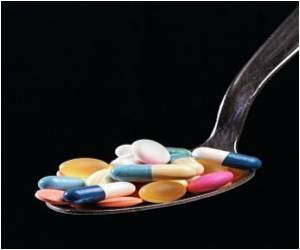
The programme has also raised awareness and has become a model for other countries working to ensure safe medicines.
Drug Controller General of India G.N. Singh said that drug packs would soon bear warning labels in rectangular box with details of adverse drug reaction (ADR).
"A stringent regulation to this effect will be enforced in the next six months. About 54,000 cases of ADR were reported during the past 18 months. We are involving about 100 medical colleges across the country to create awareness about ADR," he noted.
Early this year, Interpol carried out a global sting operation on the multi-billion dollar spurious medicine trade, which led to seizure of 9.8 million doses of illegal medicines, shutdown of about 9,600 fake online pharmacies and scores of arrests.
PSM executive director Scott La Ganga said spurious medicines posed a global and borderless threat and could impact any consumer regardless of age, income or geographic location.
Advertisement
The PSM India Initiative is managed by a group of board members from various professions and the not-for-profit Consumer Online Foundation. It is supported by the union health and family welfare and chemicals and fertilizers ministry and the World Health Organisation (WHO).
Advertisement









